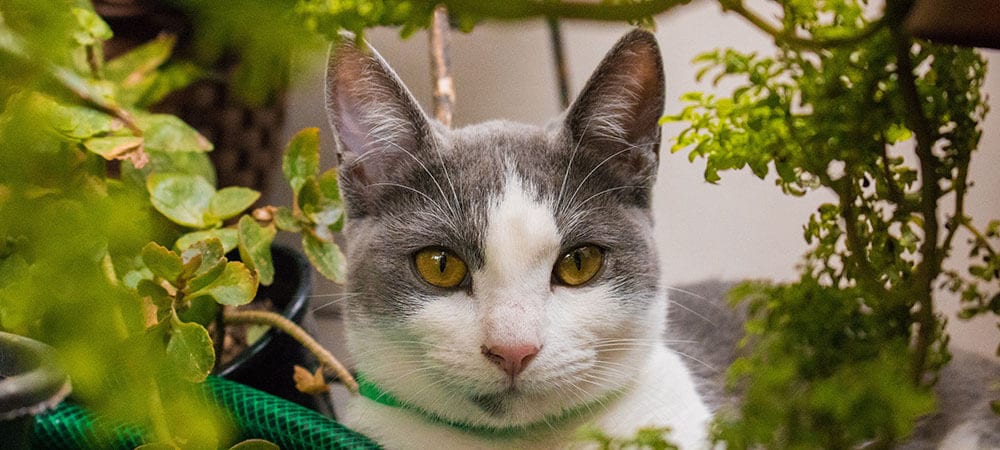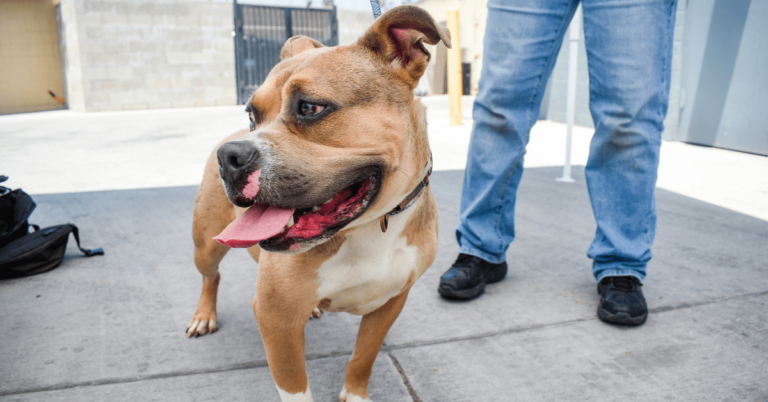Planting Herbs Safe for Cats: Tips for a Cat Herb Garden

As a cat parent, every decision you make for your home decor is dictated by your demanding fur kid. From your furniture to your lighting to trying to stay on top of the latest gardening trends, these fluffy household dictators seem to run everything. You worry about your cat’s well-being in addition to the well being of your furniture and plant life. If you’re one of the fortunate humans to have a green thumb, love to cook, and love fragrant plants, you might want to consider herbs and plants that are mutually beneficial to both you and your kitty. Read about our favorite types of herbs that are good for cats and good for you, in addition to reminders on what’s not so good.
Herbs Your Cat Will Love
There are herbs safe for cats that are actually beneficial to a cat’s diet and that can contribute to their psychological well-being, their gut, and even their teeth.
—Catnip. Try to hide your surprise. The most well-known of herbs beloved by cats and the first addition to any cat herb garden. Not only will catnip give your cats pleasure and relieve their stress, but, when mixed in a tea, it can be applied to the coats of cats with itchy skin.
—Valerian. Humans take valerian to relax or as a sleep aid. However, this herb has an entirely different effect on cats. If you’ve ever enjoyed a cup of calming tea that had valerian in it, you may have experienced your kitty’s curiosity for whatever it was you were sipping on. For them, it is a stimulant. If your cat is lethargic, depressed, or obese, valerian can do the trick to get them up and running about.
—Basil. Basil is one of the most widely grown herbs safe for cats. As any cat owner knows, they love to chew on whatever they can get their teeth on, and basil is a chewy leaf that is good for them.
—Cat Grass. Cats in the wild instinctively chew on grass. Indoor cats may act on this instinct by chewing on your houseplants, some of which may be poisonous to them. If you grow a small pot of cat grass, they can chew on that safely.
Common Mint. Did you know that catnip is a member of the mint family? It’s true, and while the more common members of the mint family won’t whip your cat into a frenzy, they will help with their digestion and their breath.
—Cat Thyme. If your cat doesn’t go for catnip, cat thyme is a common substitute, though it is known for its unpleasant odor. If you can get past that, your cat may react enthusiastically. (They don’t call it “cat thyme” for nothing.)
Plants That Are Bad for Cats
We’ve written before on plants that your feline friend needs to keep away from. As a general rule, plants from the mint family are good for cats whereas most flowers should be kept away from them. Keep this in mind when crafting your Pinterest-worthy cat herb garden. Here a few other plants you kitties should not eat, some of which may surprise you.
— Avocados. The two-legged members of your family will recognize avocado as a delicious superfood; however, it is high in a substance called “persin,” which the avocado produces naturally to combat fungus. Persin can cause illness and even death in cats.
— Lilies. These flowers are so beautiful that it’s easy to believe that they must be harmless, but both the flowers and leaves are notoriously toxic to cats and even a small amount can cause a severe reaction, so they should be kept out of your pet’s reach.
— Onions and Garlic. While harmless and delicious to people, the strong scent that these plants give off are signals to animals that they are toxic to eat.
Your Own Communal Garden
You have likely noticed that a lot of the herbs that are safe for cats are delicious for humans. (Maybe except for cat grass. But let us know…) If you integrate your cat’s herb garden with feline-compatible plants, you will create a little ecosystem your cat will love and that you’ll both enjoy, safely.


